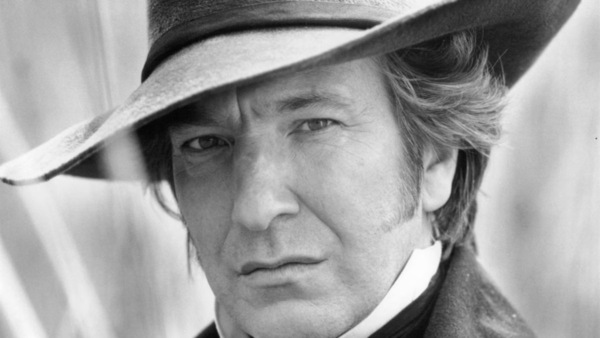Alan Rickman: A masterclass in subtlety
On Alan Rickman’s death anniversary, here’s a revisit of his entire filmography, one that was peppered with brilliant, unforgettable roles.

Last Updated: 03.15 PM, Jan 11, 2022
Alan Rickman’s ubiquitous appeal as a performer was not an unknown or even surprising element in his career that spanned over four decades. A thorough gentleman with a mild manner, Rickman’s tryst with the movies mostly had him play iconic antagonists, who managed to evoke both a sense of fear and awe in audiences who saw him onscreen.
Rickman’s calm mannerism, his raspy baritone and the grumbling, thunderous voice were always kept in check, almost as if he knew the intensity would be too much to handle on the daily. The otherwise polite man was coincidentally (or not) part of films that had him play iconic ‘bad’ men.
Topping the list of villains, Rickman’s portrayal of Hans Gruber against Bruce Willis in 1988’s Die Hard could easily qualify as a cinematic milestone. In fact, his fearless elan before the camera ensured the actor paved the way for more British performers to enter mainstream Hollywood.
But Die Hard, which made him a household phenomenon and achieve cult status, would only be a first in a series of emblematic roles that gave the world deliciously vicious villains that could negativity in many ‘a soul.
Topping Hans Gruber’s memorable act, Rickman went on to star in 1991’s Robin Hood: Prince of Thieves as the inimitable Sheriff of Nottingham. The role was not only universally appreciated, but it was also considered one of his best performances. The 1995 HBO film, Rasputin, also saw the actor play the titular villain. This particular role earned him a Golden Globe and a Screen Actors Guild Award for outstanding performance.
With Rickman, it was always about subtlety, even when he was shouldering the favourite bad guys of cinema. Elliot Marston also drummed up considerable buzz in Quigley Down Under. Critics were amazed at how Rickman imbued layers in his depictions of the more sinister of humans.
His acting compelled the heavyweights to come with phrases like “sensual screen villain”, the villain “you couldn’t help rooting for” or even the quintessential “complicated villain”.
But the most fascinating aspect of Rickman’s filmography was not his portrayal of the negative roles, but how he embodied the romantic heroes in the films that he was a part of. Sense and Sensibility and Truly, Madly, Deeply saw the actor take up the lovable cape and play it to the hilt.
Rickman inculcated in his brand of love, a palpable passion and yearning that spoke to millions of how sensitive he was onscreen with his characters. “Rickman’s portrayals of men in love [were] at once retrograde and progressive: They celebrate the simple yet culturally fraught fact that men can love as deeply as women.”
He was never swashbuckling through scenes, sweeping women off their feet with his sexy smoulder. He was instead silently standing on the sidelines, longingly stealing glances of his paramour, he was instead selflessly acting on his instincts to help his lady love even if it meant her leaning towards another man.
His emotions were never an obligatory move that ought to be performed simply because he was a man, it was more an end in itself, evoking the purest of emotions.
Even his portrayal of Professor Severus Snape ultimately proved that he was the biggest romantic, neatly boxing in huge secrets just to maintain peace. Rickman’s unworded love letters to his love interests were always a charming aspect for his audiences, who would champion his cause as the underdog ‘good guy.’
Snape, arguably Rickman’s most sought after performance, was in fact a contentious addition for the actor in him. When a set of his letters were auctioned posthumously, Rickman expressed a sense of ‘frustration’ with Snape’s placement in the overall narrative of the Harry Potter franchise.
A RADA graduate, Rickman studied each character with a sense of purpose, one that would allow him to immerse himself into the role. As Harry Potter reached its later instalments onscreen, the actor felt Snape’s arc being demolished into something he did not necessarily relate to.
The fact that Rickman cared, says a lot – both about his love for the craft, and his sincerity in portraying genuine characters in cinema.
Rickman’s old-world charm brought forth a kind of love, long forgotten in the humdrum of modern, ‘express’ love. As was once said very correctly of the actor, “The nuance Rickman lent to his roles brought to the fore centuries-old, and yet still highly relevant, treatments of romance as a series of collisions—of individual and other, of emotion and reason, of passion and social constraint.”

